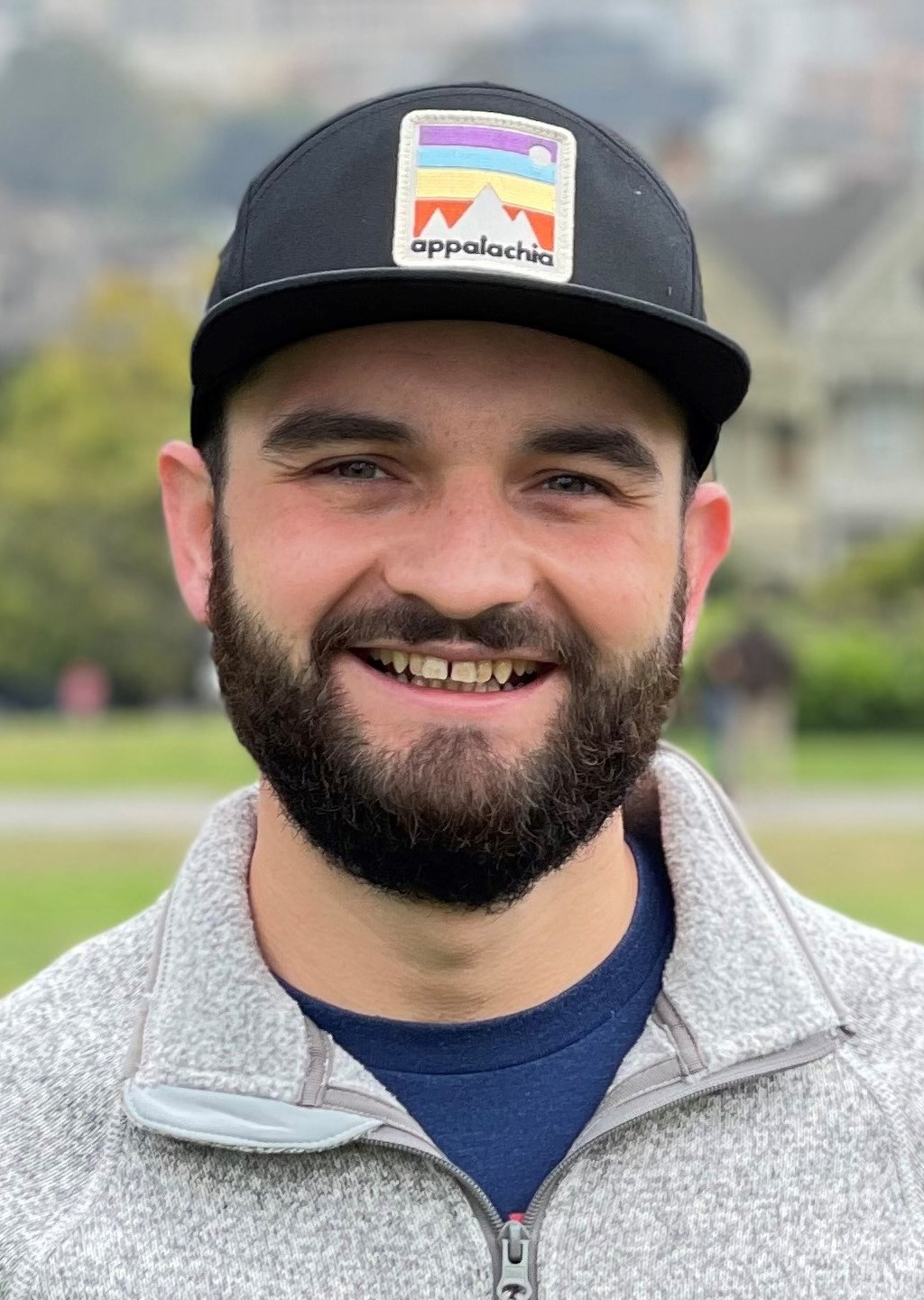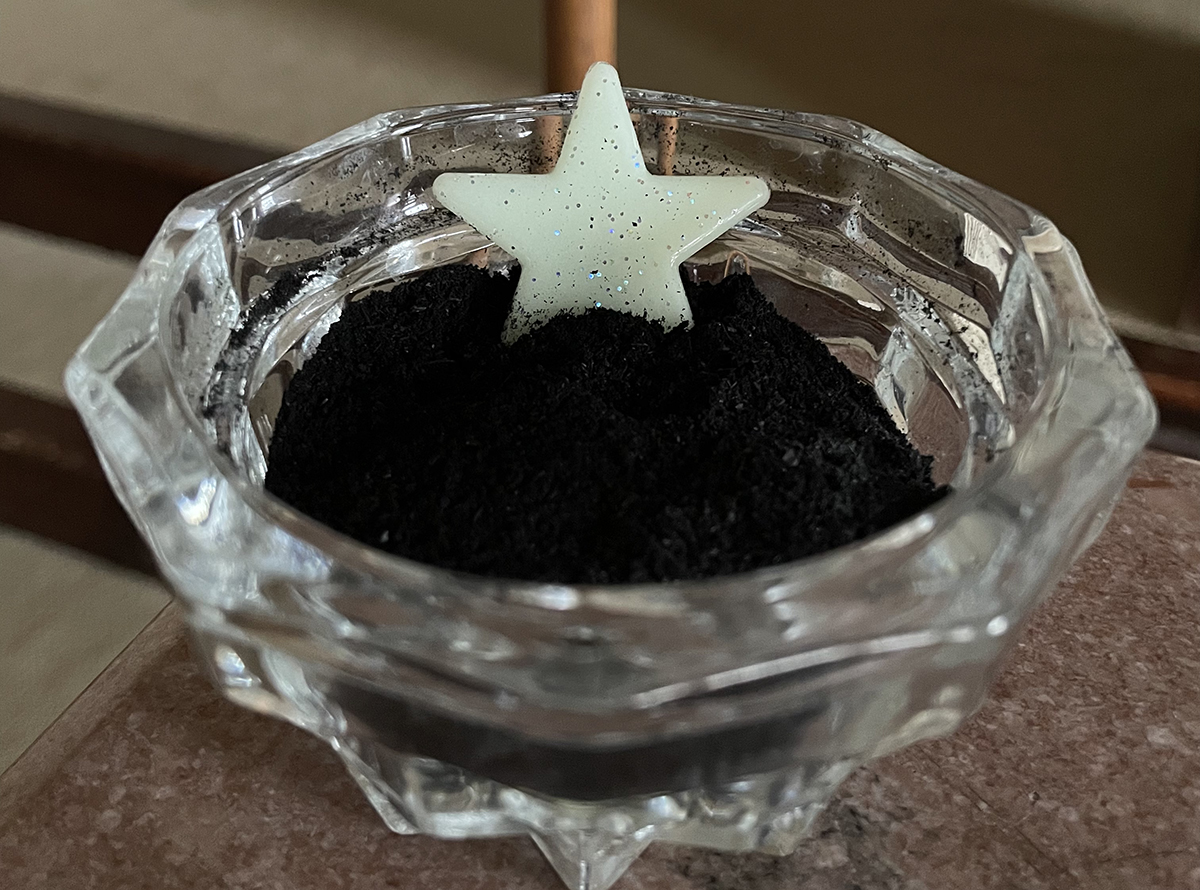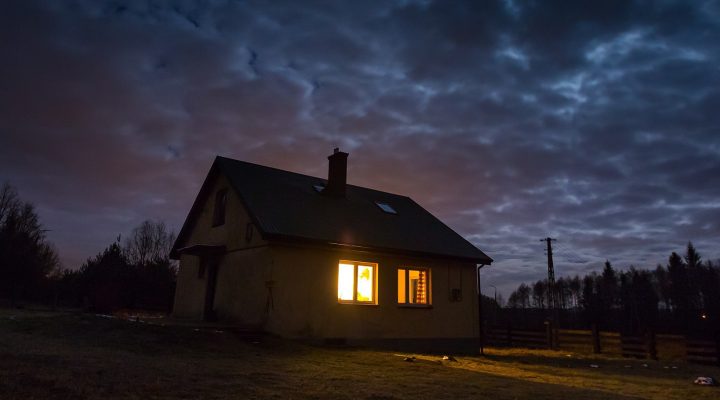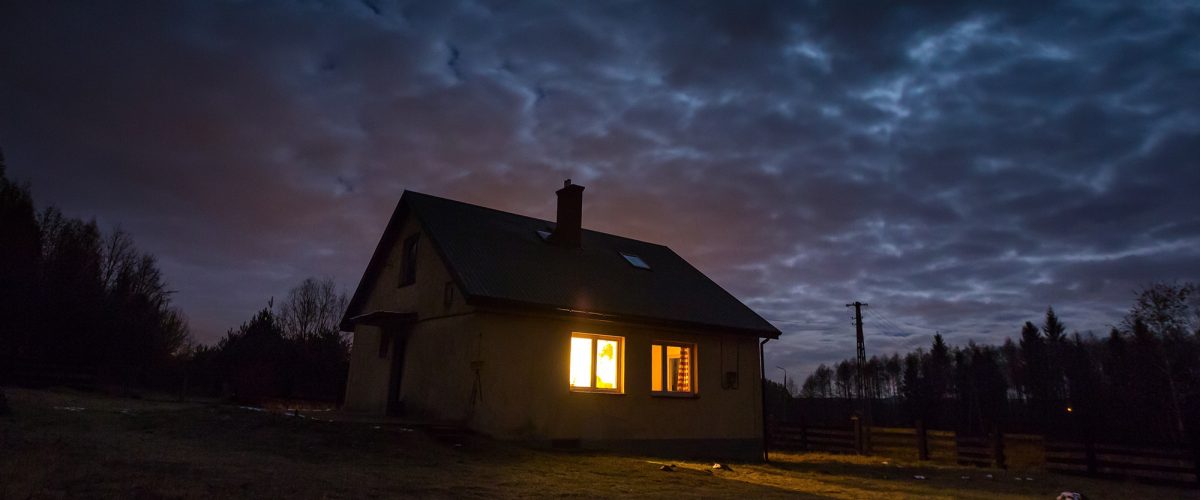I was a teenager driving myself home late one night from what we called, “the big city,” Pikeville, Ky. Several of us “juniors going on seniors” had gone to Pikeville that night to watch what I thought was a comedy.
I was wrong. My friends knew me well enough to know that if they told me we were going to see the new Nightmare on Elm Street, I would have bailed in a heartbeat. They all lined up in front of me and bought their tickets before me, forcing me to join them in the scary movie.

Jordan Conley
The truth is, I don’t like scary movies, especially scary moves in the dark. Needless to say, the drive home, by myself, through the mountains, was terrifying. That night, the darkness seemed as thick as the coal in the ground beneath me. As I rounded that last curve before Mamaw’s house, I let out a big deep breath, knowing if Freddy Krueger was lurking in the wilderness, I had escaped him, at least for one more night.
More truth: I’ve been afraid of the dark as long as I can remember. It’s not only nighttime that makes me afraid. I’m afraid of nightmares and needles; death and divorce. For me, darkness culminates in fear. I’m afraid of losing my dog, my husband, my little sister, my parents, my in-laws, anyone I love. I’m afraid of the proximity of gun violence in our neighborhood. I’m afraid for little children who go to bed with growling bellies, I’m afraid for polar bears who are quickly running out of places to live.
If the world bent to the whims of Jordan, I would wave a wand and heal all the world’s problems; everything from splinters to starvation would be eliminated in an instant.
That’s what I imagine, at least. The problem is when I give myself over to my fears, I get so self-absorbed and self-consumed that I’m not much good to anyone else. Theologians have called that “being lost,” and there have been times in my life, and I bet in yours too, where I have been so lost in my own thoughts that I cannot tell where I am in that dark place, much less where I am going.
That’s one of the reasons I keep coming back for the ashes on Ash Wednesday, the first day of the Lenten season. On any other day, we might be able to platitude our way through life, but on this day, we remind ourselves that “we are dust and to dust we shall return.”
Sarah Miles puts it this way: “It is rare in our culture to admit in public that we are not in control. That we are not God. Given the den of political advertising, and hype, and cultural pressure surrounding us, it is rare to escape the lie that money, or fame, or science, or violence, or shiny objects will somehow save us from death. This is why we take the ashes, because it is rare, and it is true.”
Last week was the first Ash Wednesday that I not only took ashes upon myself but imposed ashes upon a congregation as pastor. As I did so, I said those remarkably simple yet profoundly mysterious words, “We are dust, and to dust we shall return.”
“Betwixt the dust of creation and the dust of resurrection, we have been called to a holy and sacred task of saying, ‘None of us can make it alone.’”
I suppose there are not enough holy moments like that in our churches. When we come together, cameras off, Sunday bests laid aside, we look one another square in the eyes as imperfect people, we look into eyes that behold both the beauty and tragedy of this life, and we remind ourselves that betwixt the dust of creation and the dust of resurrection, we have been called to a holy and sacred task of saying, “None of us can make it alone.”
As I got closer to home that night in the mountains of Eastern Kentucky, I noticed every single light, inside and outside the house, had been turned on. As I looked even closer, I knew well the familiar figure standing at the door of the carport. It was Mamaw, waiting there in her nightgown, arms crossed and eyes peering out the holler like two lighthouses, guiding me safely home.
Ash Wednesday reminds us it is OK to be afraid of the unknown. The love of God is sustaining us, and the love of community is surrounding us, for as Julian of Norwich saw in a vision, “There is a force of love moving through the universe that holds us fast and will never let us go.”
“Whatever we seek during this season of Lent, God’s love sustains us even when we have more questions than answers.”
Maybe the job that once shaped who you were is gone or is changing at a speed you cannot catch up with no matter how hard you try. Maybe you long for the world as it was before the pandemic, a place that was a little more sure of itself than the unknown wilderness we traverse today. Whatever we seek during this season of Lent, God’s love sustains us even when we have more questions than answers. Even when we knock on doors that have not been opened. The Psalmist writes, “Even the darkness will not be dark to the Holy One; the night will shine forth like the day, for darkness is as light.”
 As I smudged ashes on foreheads this year, I took at least two creative liberties.
As I smudged ashes on foreheads this year, I took at least two creative liberties.
First, I placed in the palm of each person a star, praying that as the star of the Magi led them to the Christ child, the star in their palms would be a beacon of hope. The simple star reminds us that even as we venture into the unknown, the Holy One takes us gently by the hand, like a parent who walks her child safely home at night. Hand in hand, the ever-caring grace of God teaches us things in the dark we could never learn in the light of day.
Second, I spoke a word for this night: “Remember.” Remember the thoughts God has toward us outnumbers the grains of sand. Remember that God is like a Mamaw, who turns on every light she can find, who stands watch, and tenderly whispers, “I love you. I’m so glad you’re home.”
Jordan Conley serves as co-pastor of Crescent Hill Baptist Church in Louisville, Ky. He is a graduate of Baptist Seminary of Kentucky.
Related articles:
When Ash Wednesday isn’t what you expect | Opinion by Amy Butler


